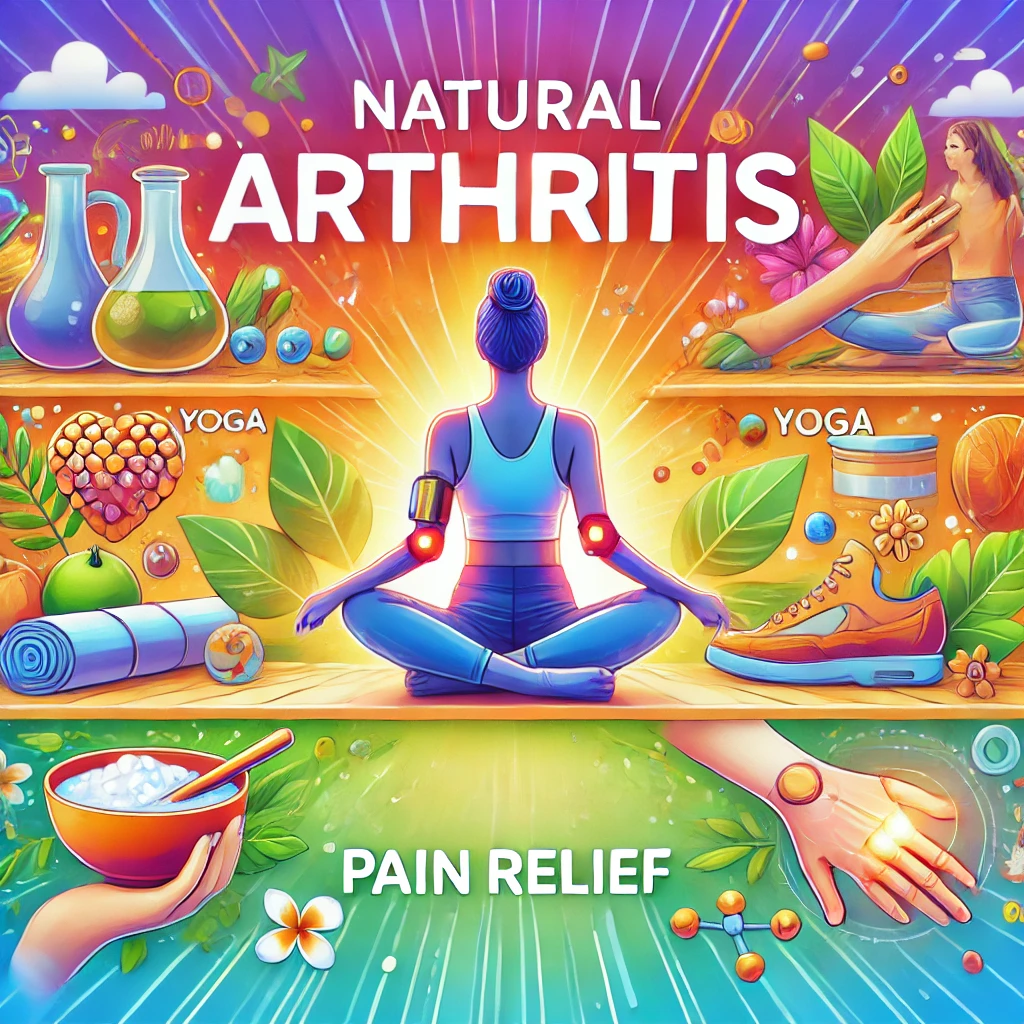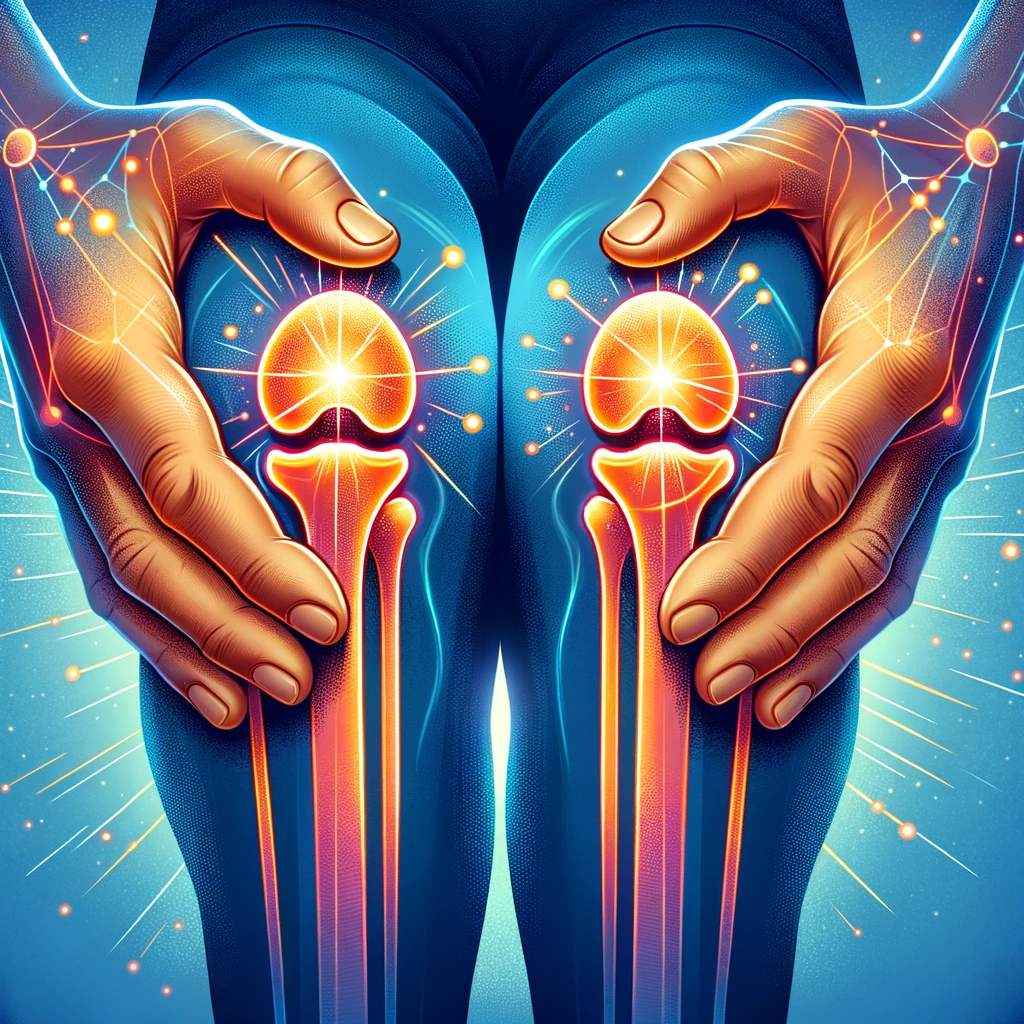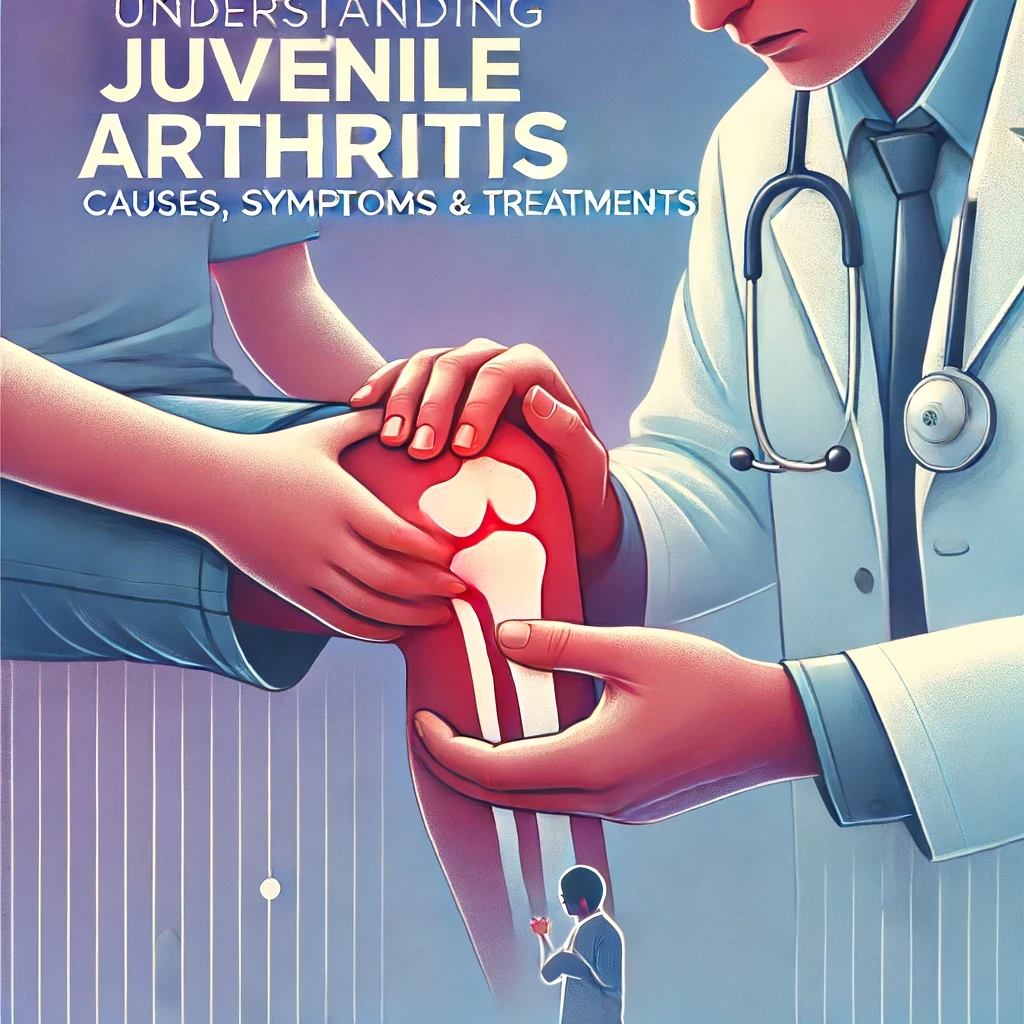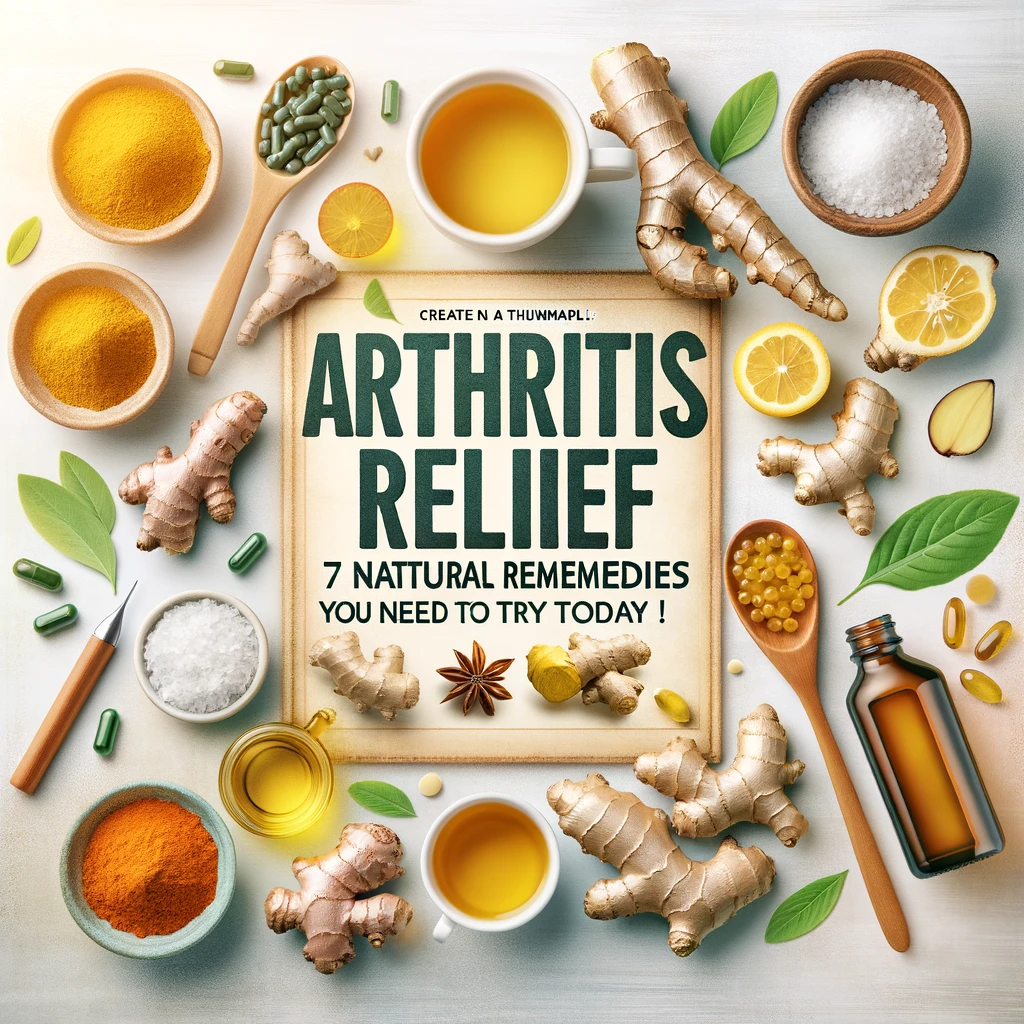
Living with arthritis can be challenging, but managing the pain doesn’t always have to involve medication. Many effective strategies can help alleviate discomfort and improve your quality of life. This article will explore various non-medication approaches to managing arthritis pain, providing you with a comprehensive guide to living more comfortably with this condition.
Arthritis pain management encompasses a variety of techniques that target both the physical and emotional aspects of the condition. Lifestyle changes, such as incorporating regular exercise and maintaining a healthy diet, can significantly reduce inflammation and improve joint function. Additionally, alternative therapies like acupuncture, massage, and mindfulness meditation offer holistic ways to manage pain and enhance overall well-being. By exploring these non-medication approaches, individuals with arthritis can find personalized strategies to reduce pain, increase mobility and improve their quality of life, empowering them to live more comfortably with arthritis.
Understanding Arthritis
Types of Arthritis
Arthritis is a broad term that encompasses over 100 different conditions affecting the joints. The most common types are osteoarthritis, which is caused by wear and tear on the joints and rheumatoid arthritis, an autoimmune disorder where the immune system attacks the joints.
Symptoms and Causes
Common symptoms of arthritis include joint pain, stiffness, swelling and decreased range of motion. Causes can vary from genetic factors and infections to lifestyle choices and environmental triggers.
Diet and Nutrition
Anti-inflammatory Foods
Incorporating anti-inflammatory foods into your diet can help manage arthritis symptoms. Foods rich in omega-3 fatty acids, such as salmon and chia seeds, and antioxidants found in berries and leafy greens can reduce inflammation.
Foods to Avoid
Certain foods can exacerbate inflammation. It’s best to avoid processed foods, sugary snacks and red meat. Gluten and dairy may also trigger symptoms in some individuals.
Role of Supplements
Supplements like fish oil, turmeric and vitamin D have anti-inflammatory properties that can help manage arthritis. Always consult with a healthcare provider before starting any new supplements.
Exercise and Physical Activity
Benefits of Regular Exercise
Regular exercise helps maintain joint function, reduces stiffness and strengthens the muscles around the joints, providing better support.
Low-Impact Exercises for Arthritis
Low-impact exercises like swimming, cycling and walking are excellent for people with arthritis. These activities improve cardiovascular health without putting too much strain on the joints.
Strength Training and Flexibility Exercises
Strength training helps build muscle strength, while flexibility exercises such as stretching and yoga can enhance joint flexibility and reduce pain.
Weight Management
Importance of Healthy Weight
Maintaining a healthy weight reduces the strain on your joints, particularly weight-bearing joints like the knees and hips.
Tips for Weight Management
Incorporate a balanced diet and regular exercise into your routine. Monitor your calorie intake and focus on whole, nutrient-dense foods.
Impact of Weight on Arthritis
Excess weight can worsen arthritis symptoms by increasing pressure on the joints, leading to more pain and discomfort.
Heat and Cold Therapy
Benefits of Heat Therapy
Heat therapy can relax muscles and improve circulation, helping to reduce joint stiffness and pain.
Benefits of Cold Therapy
Cold therapy reduces inflammation and numbs sore areas, providing pain relief.
When and How to Use Them
Use heat therapy before physical activities to loosen up the joints and cold therapy after activities to reduce swelling and pain.
Physical Therapy
Role of Physical Therapy in Arthritis Management
Physical therapy helps improve joint function and mobility through targeted exercises and techniques.
Techniques Used by Physical Therapists
Techniques include manual therapy, therapeutic exercises, and hydrotherapy, all designed to reduce pain and improve movement.
Finding the Right Physical Therapist
Look for a licensed physical therapist with experience in treating arthritis. A good therapist will create a personalized treatment plan to meet your needs.
Mind-Body Practices
Yoga
Yoga combines physical postures, breathing exercises and meditation. It helps improve flexibility, reduce pain and enhance mental well-being.
Meditation
Meditation can help manage stress, which is a common trigger for arthritis flare-ups. Mindfulness meditation, in particular, can improve pain tolerance and emotional health.
Tai Chi
Tai Chi is a gentle form of martial arts that improves balance, flexibility and strength. It has been shown to reduce pain and improve quality of life for individuals with arthritis.
Massage Therapy
Benefits of Massage for Arthritis
Massage therapy can reduce pain, improve circulation and relax muscles. It also helps reduce stress and anxiety.
Types of Massage
Types of massage beneficial for arthritis include Swedish massage, deep tissue massage and trigger point therapy.
Finding a Qualified Massage Therapist
Look for a licensed massage therapist with experience in treating arthritis. Ensure they are knowledgeable about your specific needs.
Acupuncture and Acupressure
How Acupuncture Works
Acupuncture involves inserting thin needles into specific points on the body to stimulate healing. It can help reduce pain and improve joint function in people with arthritis.
Benefits of Acupressure
Acupressure applies pressure to specific points on the body to relieve pain and tension. It’s a non-invasive technique that can complement other arthritis treatments.
Safety and Effectiveness
Both acupuncture and acupressure are generally safe when performed by trained professionals. They can be effective in managing arthritis pain for many individuals.
Assistive Devices
Types of Assistive Devices
Assistive devices such as canes, walkers, and braces can help reduce stress on the joints and improve mobility.
How They Help
These devices provide support and stability, making it easier to perform daily activities with less pain.
Choosing the Right Devices
Consult with a healthcare professional to determine which devices are best suited to your needs. Proper fitting and usage are crucial for effectiveness.
Lifestyle Changes
Stress Management
Managing stress is crucial for controlling arthritis symptoms. Techniques like deep breathing, meditation and hobbies can help reduce stress levels.
Importance of Sleep
Quality sleep is essential for overall health and can help manage arthritis symptoms. Establishing a regular sleep routine and creating a comfortable sleep environment are important.
Avoiding Overexertion
Listen to your body and avoid overexertion. Balance activity with rest to prevent flare-ups and worsening of symptoms.
Alternative Therapies
Herbal Remedies
Herbs such as turmeric, ginger and willow bark have anti-inflammatory properties that can help manage arthritis pain.
Essential Oils
Essential oils like lavender, eucalyptus and peppermint have pain-relieving and anti-inflammatory effects. They can be used in aromatherapy or applied topically.
Homeopathy
Homeopathic treatments are based on the principle of treating “like with like” and can provide relief for some individuals with arthritis. Consult a qualified homeopath for personalized advice.
Support and Community
Importance of Support Systems
Having a strong support system can make managing arthritis easier. Family, friends and caregivers can provide emotional and practical support.
Joining Support Groups
Support groups offer a sense of community and understanding. Sharing experiences and tips with others who have arthritis can be empowering.
Online Resources
There are many online resources available, including forums, blogs and websites dedicated to arthritis management. These can provide valuable information and support.
Conclusion
Managing arthritis pain without medication is possible through a variety of methods. From diet and exercise to physical therapy and alternative treatments, there are many ways to find relief and improve your quality of life. Remember to consult with healthcare professionals and approach treatment with a holistic mindset.
FAQs
Can arthritis pain be managed without medication?
Yes, arthritis pain can be managed through diet, exercise, physical therapy and other non-medication approaches.
What are the best exercises for arthritis?
Low-impact exercises like swimming, cycling and walking are excellent for people with arthritis. Strength training and flexibility exercises can also help.
Are there any risks associated with non-medication treatments?
While non-medication treatments are generally safe, it’s important to avoid overstretching and listen to your body. Consult with a healthcare professional if you have any concerns.
How long does it take to see improvements?
The time it takes to see improvements can vary. Some individuals may notice improvements within a few weeks, while others may take longer. Consistency is key.
Can diet really affect arthritis symptoms?
Yes, a healthy diet can help reduce inflammation and manage arthritis symptoms. Incorporating anti-inflammatory foods and avoiding trigger foods can make a significant difference.



